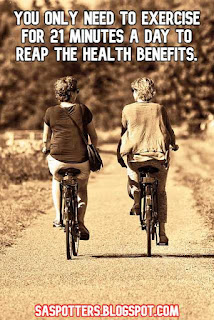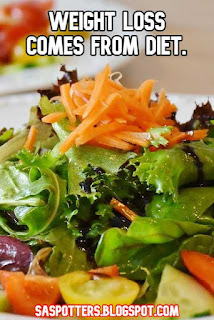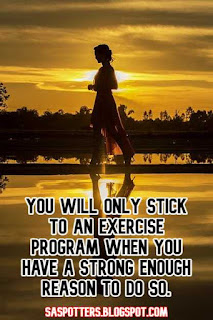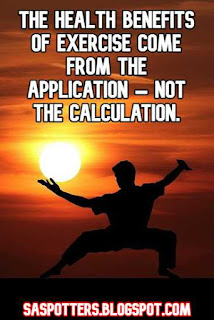I have been working in the fitness industry for 25 years.
I started as a PT tech while working on my master’s degree in Exercise Physiology.
I had already earned a bachelor's degree in Psychology at that time. I originally thought that I was going to make a career in psychology.
I found that my true passion was fitness. The fact is that I have still made a career out of psychology as well.
Physiology and psychology go together. The body and the mind are connected. When you add the spiritual component, you have complete wellness.
Body, mind and spirit are combined to form complete wellness.
After working as a PT tech, I started my own personal training business. That was in 1994.
In these 25 years I’ve found that the toughest client to work with is a weight loss client.
It’s not because I struggle with what they need to do. It is because many don’t understand that most weight loss, if not all of it, is going to come from diet.
Exercise is going to serve a different role for them. That’s a hard message for many weight loss clients to grasp.
I believe that I use my psychology background almost as much as I use my physiology education.
For the most part people know they need to exercise and they know they should, most likely, eat better.
There are exaggerated and poor exercise programs out there that confuse people and there are certainly bogus, money making diet programs on the market.
You can get your hands on a good exercise program and diet information if you look. Yet, people aren’t doing it. This is a psychological decision.
Why is the choice to exercise not being made more often?
Less than a quarter of Americans exercise regularly
Depending on which study you look at, only one in seven people are on a sustainable exercise program.
In another more favorable study only one in four are exercising enough.
At the very best, 25% of the United States is exercising enough to get benefits.
Why is that? What gives?
I believe that I have at least part of the reason why. I will get into that below, but let that statistic set in.
We shouldn’t bash people for not exercising.
I’m in the industry. I believe we in the fitness industry have sent out many mixed messages and I don’t think we do a good enough job of explaining why exercise is so important.
If we explain the why, the do is more doable.
How much exercise do you need?
The American College of Sports Medicine, the American Heart Association and the World Health Organization all state that you should exercise for 150 minutes a week to get the health benefits of a fitness program.
That number equals 21 minutes per day.
Yet, as you saw above, we are not getting enough exercise as far as the nation goes.
I’m sure the rest of the world is having the same experience - just not to the extent of the United States.
Is 21 minutes of exercise every day too hard to do? I want people to reach this goal because I know that it is worth it.
 |
| Spread the word. Share this image. |
Why don’t we exercise enough?
I believe that there are three main reasons why we don't exercise enough as a nation.
The first is reason is that we use exercise as a weight loss tool.
Secondly, we don't understand all of the benefits of exercise outside of weight loss (superficial motivation).
The third reason is that we make exercise programs too complicated.
Exercising for weight loss reduces that chance that we will stick to it
The best way to lose weight is through diet. It always has been this way - and it always will be this way.
When I refer to diet, I mean cutting back on how much you eat when you want to lose weight.
It’s all about calories.
Energy (which is calories) consumed must be less than energy used to lose weight.
Yes, exercise can help. The energy consumed part is exercise and other non-exercise activities (NEAT).
Exercise on its own is not enough to lose weight. Exercise usually becomes a bad excuse for eating too much.
If you run one mile, jog one mile, or walk one mile you are going to burn about 100 calories. If you eat a banana afterwards (which takes 1 minute), you just put those calories back.
You can’t keep up. You cannot outrun a poor diet.
I’ve seen marathon runners that I coach gain weight while running 50-80 miles weekly for this very reason.
I’ve seen many people drop a significant amount of weight while never breaking a sweat. It's because they understand the role of diet in the weight loss process.
It’s about cutting calories. If we eat too much food, we will gain weight.
I don’t have the space here to go over all the benefits of choosing good foods to eat because that’s not the point of this article.
The point is that we lose weight from controlling our energy input and output.
The output part, exercise, is limited in its return on investment (regarding weight loss).
Bodybuilders know how to lose weight through diet
Another example I’ll pull from is bodybuilding.
I have competed and work with many people that have done physique competitions.
The workout program does not change that much when it comes to prepping for a show. Bodybuilders do add some more cardio-respiratory exercises into their program, but the big change comes from diet.
The diet becomes more and more critical depending on how much fat the athlete must lose.
Bodybuilders know that weight loss comes from diet - and they exercise a lot! They can lose a lot of fat in a short period of time because they understand this basic principle.
I’m more of a believer in staying close to your best state most of the time and just cutting a little bit when you need to.
If the athlete does that, the diet doesn’t have to be as low in calories. They don’t need to diet as long.
If they allow for too much weight gain during the year, the diet will be stricter and for a longer period.
The point is that body builders have known this forever. When they plan a show, they don’t say “time to start training”. They say, “Time to start dieting”.
Weight loss is about food intake. The professionals know this.
Exercise is a great way to avoid regaining the weight. Weight regain is a major problem with those that struggle with weight loss.
Here is the problem makes people stop exercising: Many people start exercising to lose weight.
Can you guess why they stop?
You got it - they don’t lose weight.
In some cases, people gain weight because they start strength training. Strength training adds muscle. This is a good thing because muscle increases your metabolism (the amount of calories that you burn throughout the day).
People don't see it this way. We focus so much on the scale that we don't realize that we are burning fat.
Commercials have convinced us that the way to weight loss is by wearing a fancy leotard and dancing to music.
If people started a diet program along with the exercise program, they would lose weight. Some are wise enough (or get the right advice) to combine the two.
I want people to exercise for all the true benefits of exercise - and I mean the actual benefits of exercise on its own.
You can absolutely become fit and gain many benefits from exercise - even if you don’t lose a pound.
People don't exercise because they don't understand the benefits of exercise
Exercise is so much more than weight loss.
People who exercise - regardless of weight - are healthier and live longer. There are many studies that support this.
You reduce your risk for chronic diseases and you will live a healthier life if you exercise - even if it is for the minimum amount of 21 minutes each day.
 |
| Exercise for the sake of health. |
Do I really need to go on? There are more benefits, but let that sink in.
Many people attempt to lose weight for those reasons. Losing weight absolutely lowers disease risk as well.
Exercising, even if you don’t lose weight, has these benefits too.
Trainees that understand this will to stick to exercise and see it for themselves.
The ones that don’t understand this, and only want to lose weight, will often step away from exercise before they experience the real benefits.
You will see that 21 minutes of daily exercise is really worth it if you let this sink in.
Is more exercise better? Yes it can be, but that’s not the idea right now.
We tend to run ahead of ourselves and burn out before we establish a proper routine.
We can see the benefits of exercise from doing as little as 150 minutes a week.
That is very worth it to me.
 |
| Weight loss isn't the best motivation. |
The other benefits of exercise outside of lowering risk for chronic diseases are many.
Exercise increases bone density. Exercise strengthens your heart so that you won’t be as winded during your daily activities.
Exercise adds muscle tone. Who doesn’t still want to look good in their tank top or t-shirt? Exercise makes you stronger. Exercise makes you better at all your ADL’s (activities of daily living).
Exercise makes you better at sports if you play any. Exercise improves your posture. Proper strength exercise prevents injury.
Exercise builds your confidence and self-esteem. Exercise lifts your mood. Endorphins are natural pain killers. They are released when you start exercising. Exercise improves your social life when you do it with others.
I have had so many clients and friends make amazing friendships from picking up a sport or joining an exercise group.
Benefits of exercise
Fitness professionals make it too complicated
 |
| Just move. It's that simple. |
Don't let things like your maximal heart rate make exercise too complicated
I have used target heart rates for clients for their cardio-respiratory exercise prescription.
For the most part, they are overrated.
They serve a purpose in some cases but for the health benefits of exercise they are very unnecessary.
Let me give you some facts about heart rate calculations.
There is a standard deviation of age predicated maximum heart rate and actual maximal heart rate
The formula for age predicted maximum heart rate is 220 minus age. You might see a poster of this hung up on the wall at a gym.
You derive a maximal heart rate from this formula.
If you are 40 years old, then 220-40 equals 180. If you are going to exercise at 80% of that (a common prescription) then your target heart rate is 144.
There is a potential problem with this. There is a standard deviation of 30 beats when using the estimated maximal heart rate formula.
This means that this 40 year old’s heart rate could be anywhere from 165 to 195.
That really throws off the 80% heart rate!
This standard deviation now makes the 80% either 132 or 156 which is a 24-beat swing. You might as well not track it.
 |
| Keep it simple. |
There is a place for these kinds of prescriptions, but I believe they often cause more harm than good.
We’ve known a lot of this stuff for 50 years, so why aren’t people exercising more?
We’ve made it more complicated than it must be. I can take this all the way to the elites as well.
Roger Bannister broke the 4-minute mile in 1954.
Now, the record is about 15 seconds faster.
15 seconds is a lot when you are racing the mile, but think about that.
With all the training and knowledge that we now have access to, we’ve only shaved 15 seconds in 64 years.
He seemed to be doing well with not as many formulas and prescriptions. I can go on and on with examples.
Don’t get me wrong; shaving just milliseconds in competition is huge. Why aren't our workout formula's getting people to move more often?
The added technicality hasn't helped us that much because it has given us more to calculate.
We have over-prescribed exercise.
I don’t think that we need to over-prescribe or over-plan a simple habit.
I believe that if we just get out there and do it; our body will let us know how to progress.
We get the opposite effect of what we want when we over plan and over prescribe something as simple as exercise.
Just move. Just do it.
 |
| Just get up and move. That's all. |
Even a small amount of exercise is worth it
Exercise is worth it.
We don’t have to do as much as we might have been led to believe - and we don’t have to go as hard.
We benefit in so many ways from doing it.
It’s not about losing weight. It’s not about performing a complicated program. It’s about moving.
When we exercise, we become healthier. The science bears this out.
Give it a try and let the endorphins get you through until you start seeing the benefits.
Once you do, I hope that you end up joining the top 25% of the world that realize how much it helps them.
This article is written by Rob Maxwell, M.A. Exercise Physiology, CSCS and ACSM CPT from www.fittothemax.net. Follow him on Twitter.













No comments:
Post a Comment